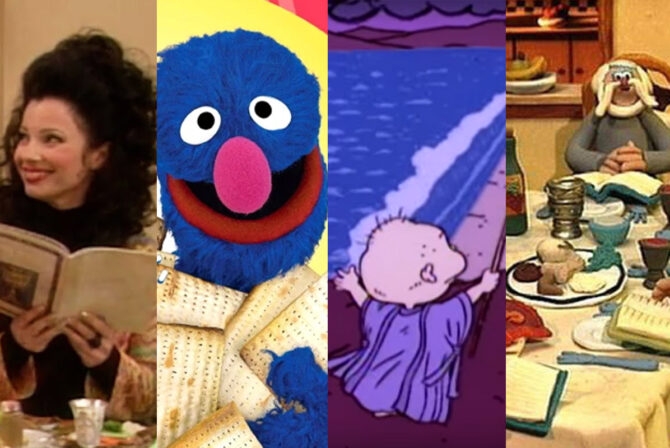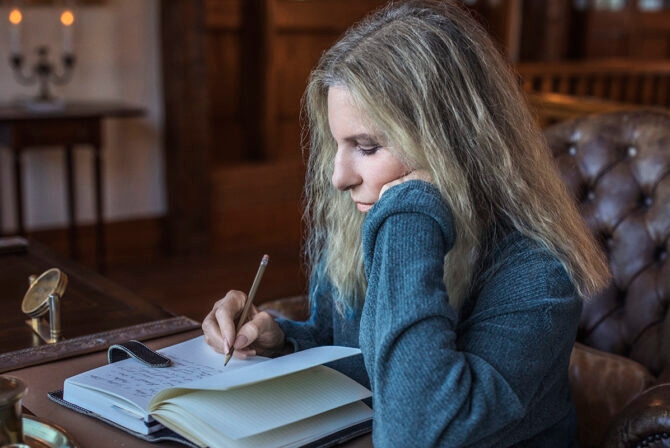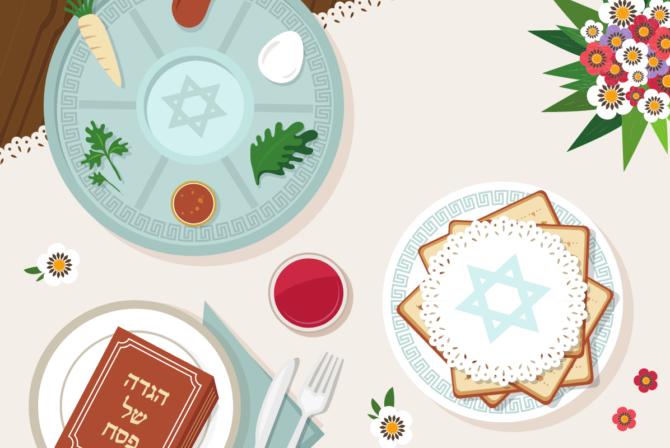A Mountain of Blintzes by Barbara Diamond Goldin begins with a family excitedly preparing for the upcoming holiday of Shavuot. How, they wonder, can they adequately honor the day Moses climbed a mountain and brought the Torah to the Jewish people? How can they, a family of very modest means, save enough money to make a mountain of blintzes, a traditional Shavuot treat?
When I read the book to my daughters, this enthusiastic anticipation of Shavuot did not resonate with them. At all. Despite my best efforts to make the Omer, the countdown from Passover to Shavuot, exciting (including an advent-calendar inspired candy chart), I haven’t yet figured out a way to make the anniversary of the Jewish people receiving the Torah meaningful and fun for my kids. Maybe they’re just not that into blintzes.
Even less familiar to my kids than the can’t-wait-for-Shavuot-madness was the industriousness of the children in the story. Not only do these kids help with the chores on their Catskill farm without a single kvetch, but they also sneak off and do extra chores for neighbors. Then they hand over their earnings to their parents, who haven’t been able to save a cent. Just so the family can have a mountain of blintzes.
Our children don’t have quite the same fastidious work ethic, to put it mildly. Case in point: their father delivers a basket of clean laundry to their bedroom every Sunday. A week later, most of that laundry is still in the basket or strewn around the floor, rather than in their drawers where it belongs. We’ve tried sticker charts, we’ve tried tying an allowance to the completion of chores, and God knows we’ve tried yelling. It turns out my kids aren’t really interested in money or stickers, and that my husband and I really don’t like yelling.
So when we read A Mountain of Blintzes, I wondered, “What magic is at work in this family? Why are these children willing to work so hard?” I think the answer is actually pretty clear. Kids are just like grownups. They want to believe their work is valuable. When you live on a farm, and there won’t be milk unless you milk the cow…well, then you milk the cow. If you want blintzes, and there really won’t be enough money unless you pitch in….you pitch in. But for those of us whose families don’t live on farms and have never had to worry about paying the grocery bill, how do we help our kids develop this same sense of responsibility?
I think the answer is to develop good work habits by starting with jobs that matter to them. The reason I have to noodge my kids to put their laundry in the dresser is because they are just as happy to dig their clothes out of bins. So last night, I said, “Since you haven’t put away your clothes, and I hate rummaging through the bins, you’ll need to lay out your clothes for school tonight.” They did it immediately. A few minutes before dinner I said, “Dinner won’t be served until the table is set!” For once, my hungry girls got right to work.
Eventually, we can sit down as a family and make a list of all that needs to get done. Then we’ll invite our children to pick a few more chores that they are willing and able to make their responsibility. Tiny steps towards our ultimate goal–raising confident and capable adults who can shoulder responsibility for their families and their communities.
In a way, the weeks before Shavuot are a perfect time for a conversation about responsibility. The Torah offers guidelines for building a healthy Jewish community. Why not take this moment to update the guidelines for building our healthy Jewish family? Even if, by chance, your kids don’t want to build a mountain of blintzes.
 This piece is part of our monthly series with The PJ Library. The PJ Library program sends Jewish-content books and music on a monthly basis to families with children through age eight. Created by The Harold Grinspoon Foundation in partnership with local Jewish organizations and philanthropists, The PJ Library is available in more than 130 communities across North America.
This piece is part of our monthly series with The PJ Library. The PJ Library program sends Jewish-content books and music on a monthly basis to families with children through age eight. Created by The Harold Grinspoon Foundation in partnership with local Jewish organizations and philanthropists, The PJ Library is available in more than 130 communities across North America.







